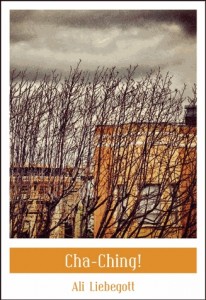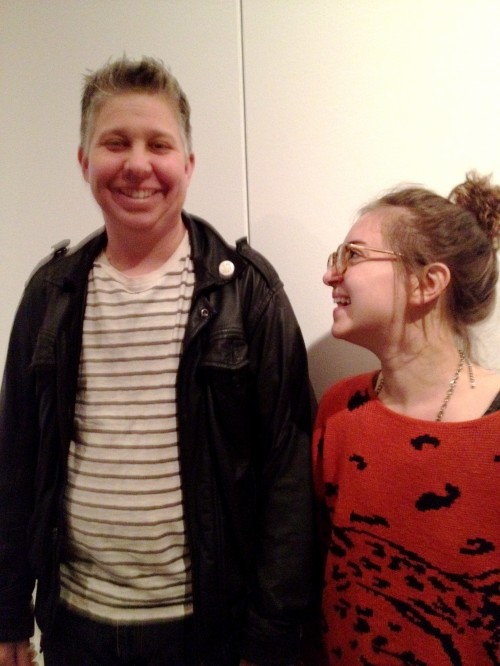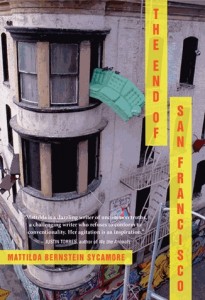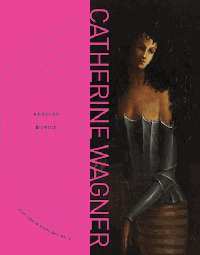Ghost Tantras by Michael McClure
 Ghost Tantras
Ghost Tantras
by Michael McClure
City Lights, Forthcoming November 2013
106 pages / $13.95 Preorder from Amazon or City Lights
Michael McClure’s classic Ghost Tantras (long out of print but soon to be re-released by City Lights) was self-published in 1964 and in 2013 it continues to be just as strange, earnest, ridiculous, and fascinating a work. Somehow, Ghost Tantras reads today both as fresh and faded. There’s something about McClure’s “beast language,” intended to put readers in touch with their primordial, animal selves, that sounds simultaneously urgent and dated. McClure’s poetic passion and undeniable force is immediate and magnetic. Thematically, however, McClure’s “beast language” appears unaware of its own contradictions. Whether or not you agree with McClure’s linguistic philosophy, you simply cannot ignore a poem like “Tantra 32:”
dorr kann bee blayke leet eer noo tow thownie
dann brekk thay mah torr blurt noh breshk bakk
mag me toww noh oww thoonie meeee blest !
KHRAHRR ! SHELF ! TEEMOWW !
eem now oodorr sen bless I thee ooh-nohh
carnal air of wax portrayed in smoke.
THEE OWW OHH MY
sung & sad fabled sleeping self
grahoored to waking gowwr.
These poems are intense, serious, hilarious, beautiful. The “beast language” is intended to appeal to the animal inside every human (animals can’t read, unfortunately, even in beast language, which is perhaps why McClure famously read his poems aloud to lions at the San Francisco Zoo. For McClure, language is something entirely different than simple words and syntax. He pushes language to many limits, most of them definitive. Words here become sounds, writing becomes speech; what is so foundationally cultural—language—is imagined and acted upon as natural. If nothing else, this makes for some bravely original and compelling poetry, and McClure is widely recognized today as a revolutionary poet because of his atypical attitudes toward language.
There is a beautiful energy around Ghost Tantras, and around McClure’s mystique, but looking at the 1960s from our vantage point, it’s hard to believe McClure actually thought these poems would “change the shape of the universe.” It is perhaps a testament to the importance of poetry (and cultural life in general) in America in the 1960s that anyone would believe such a thing. Maybe we need some of that confidence today. Hesitancy, academization, and critical thinking have certainly brought poetry, and the universe, nowhere fast. McClure and his generation are undoubtedly courageous writers, even if they appear to us as naïve. Naïvete may be a necessary foundational element for work as bold as this. McClure’s attempts to construct a natural language fail because he uses the English alphabet to construct that language (not to mention that beast language sounds conspicuously like Old English). The natural, or a direct biological reality, cannot be divorced from our intellectual understanding of that reality. McClure is attempting to construct something pure and natural from the cultural debris he happens to pick up. Unfortunately, he doesn’t interrogate his choices of debris. Nevertheless, the philosophical shortcomings of Ghost Tantras are central to its success. In her book Stupidity, Avital Ronell writes,
The severest of poets ventured, as if prompted by some transcendental obligation, into a consecrated domain where language meets its unmasking in stupidity, idiocy, imbecility, and other cognates of nonknowing. [. . .] Poetic language remains sheer promise and, in the way shown by Hölderlin, capable of hearing the alien unsaid.
McClure is the severest of poets, an American Hölderlin, and Ghost Tantras shows us the unexpectedly beautiful things that poetry can do when it is pressed against and beyond its rational limits. Beast language is a cognate of nonknowing, though it remains sheer promise. Ultimately, Ghost Tantras stands as a historical marker of the radical courage and passion of McClure and his generation, and it is perhaps time for that message to be heard, without understanding, once again.
***
Housten Donham is a poet and critic. He lives in the SF Bay Area. He sometimes updates his tumblr (elkrunningfromwolves.tumblr.com).
September 16th, 2013 / 11:00 am
Ali Liebegott Obsessed
 Cha-Ching!
Cha-Ching!
by Ali Liebegott
City Lights / Sister Spit, 2013
252 pages / $15.95 Buy from City Lights or Amazon
I was furious with Ali Liebegott for writing a novel. We’d lost another poet to the tyranny of fiction. But really, we gained Ali’s careful witness to luck, desperation, and desire, now turned to the queer project of making a world.
Gaines and losses are perhaps apt metaphors for Cha-Ching!, Liebegott’s latest work, in which gambling figures as a central theme. But for Theo, its main character, gambling is about more than fortunes. Gambling is a currency of hope.
Fuck reviewers citing “universal” concerns that appeal to “general” audiences. This character is a self-made, self-secure “sirma’amsir,” and an appealing one. Always on the brink. Of going broke, of drinking again, of saying the wrong thing to the right lover.
Cha-Ching! is an addiction story without recourse to self-help and redemption. It’s a romance built not from exchanging vows, but traumas, drugs, and fluids. You had me at the puke on my sheets. The characters are always making something out of nothing—a dime into a jackpot, a shitty apartment into a home, a blank sky into a declaration of love. It’s gruesome. It’s hilarious. It’d make a puppet out of the hardest of hearts.

I caught Liebegott in the middle of her Sister Spit tour to ask her about her many obsessions. When her tourmates weren’t asking her for keys to the van she was driving, this is what happened:
TJR: If you had the choice to make out with Dostoyevsky or Van Gogh, who would you pick?
AL: I think Van Gogh, but that might be ageist, because I think I’ve only ever seen portraits of Dostoyevsky as a balding man. Van Gogh had really bed teeth, right? I think Van Gogh, although they both seem like terrible problematic relationships, so either would do. It’s tough. But probably Van Gogh.
May 10th, 2013 / 11:00 am
The End of San Francisco
 The End of San Francisco
The End of San Francisco
By Mattilda Bernstein Sycamore
City Lights, March 2013
192 pages / $15.95 Buy from City Lights or Amazon
When I left Seattle and went to grad school in Los Angeles at the end of the 1990’s, I read Benedict Anderson’s Imagined Communities and it changed my life. It gave me a framework to understand the searing misunderstandings going on in the feminist self-defense collective I had been pouring my heart and soul into since we came together in response to the rape and murder of our friend Mia Zapata. Some of us in the collective became best friends while others of us could barely speak to each other without spitting. Sisterhood was powerful but it was also alienating. Any unified identity as a community, the word we used to describe who we were and who we felt accountable to, was absolutely imagined.
Benedict Anderson’s Imagined Communities is kind of an odd place to start a review of Mattilda Bernstein Sycamore’s new book, The End of San Francisco, since she is an antidote to rather than perpetrator of sterile inaccessible academic writing. But The End of San Francisco is as much social critique about the impossibility of collective dreams as it is a memoir looking back at queer and feminist community building in the ‘90’s. And it feels life changing reading this book in the midst of the marriage debates.
The book moves in and out of time and geography, traveling in a non-linear journey across several U.S. cities including Seattle and, of course, San Francisco. This journey is a timely reminder that creating a queer family once meant we were running away from the families that rejected us, that broke our hearts, sometime our bones, and often our will to live. It’s a story for all of us who ran as far as we could to find the other freaks searching for new ways of being family and being in relationships that were more than our parents’ misery. This is a story about those of us who gave a shit about health care, survival and telling our stories, not getting married or getting tax breaks.
There is no distance between memory and remembering in the writing. It’s all happening at once. As a reader I felt like I was inside my own memories while I was given access to the formative moments of someone else’s life. I kept wanting Mattilda Bernstein Sycamore to be sitting next to me so I could say, “Right, me too.”
Right, me too.
Right, becoming aware of not being phased by the violence as a form of self-protection. I know that one well.
May 6th, 2013 / 11:00 am
Nervous Device by Catherine Wagner
 Nervous Device
Nervous Device
by Catherine Wagner
City Lights Publishers, October 2012
City Lights Spotlight Series No. 8
73 pages / $13.95 Buy from City Lights or SPD
I’ve had a copy of Catherine Wagner’s latest collection, Nervous Device, for three days and already it’s beat up, pages are folded and scribbled over, and the whole book is bent in half (the result of a heavy bashing I gave it against the side of my desk). Many of my most-loved books end up looking similarly destroyed, but the physical damage I’ve done to Nervous Device stems from a different impulse—what I can only call frustration.
So why am I frustrated with this unassuming, 73-page collection, particularly since I’ve been a Wagner fan since her first book, Miss America, came out in 2001? It’s because I don’t know how to find coherence in this collection and yet—here’s the frustration—I can’t stop reading it.
When I begin a new book of poetry I don’t look for cohesion of any particular kind, nor do I think all collections need to, or benefit from, coherence. However, in reading Nervous Device I felt that I was missing some critical structure that created a through-line in the book. I kept asking, why these poems? How is this a collection?
Then I realized maybe that was the point—Wagner isn’t interested in packaging the poems for us—we must do this ourselves. In an interview with Elizabeth Coleman at Art Animal (September 2012), Wagner speaks of her own concern with these poems, saying “‘I worry that in this book I’ve tried to be smart in some places because publishing with City Lights felt like a big deal…That’s a deadly thing—the wish to appear smart’” [full interview here]. I immediately stopped reading the interview, re-read Nervous Device, and realized I was trying to force a larger structure on the book when what I needed to be doing was enjoying it because of its language, poem by poem.
November 26th, 2012 / 12:00 pm
